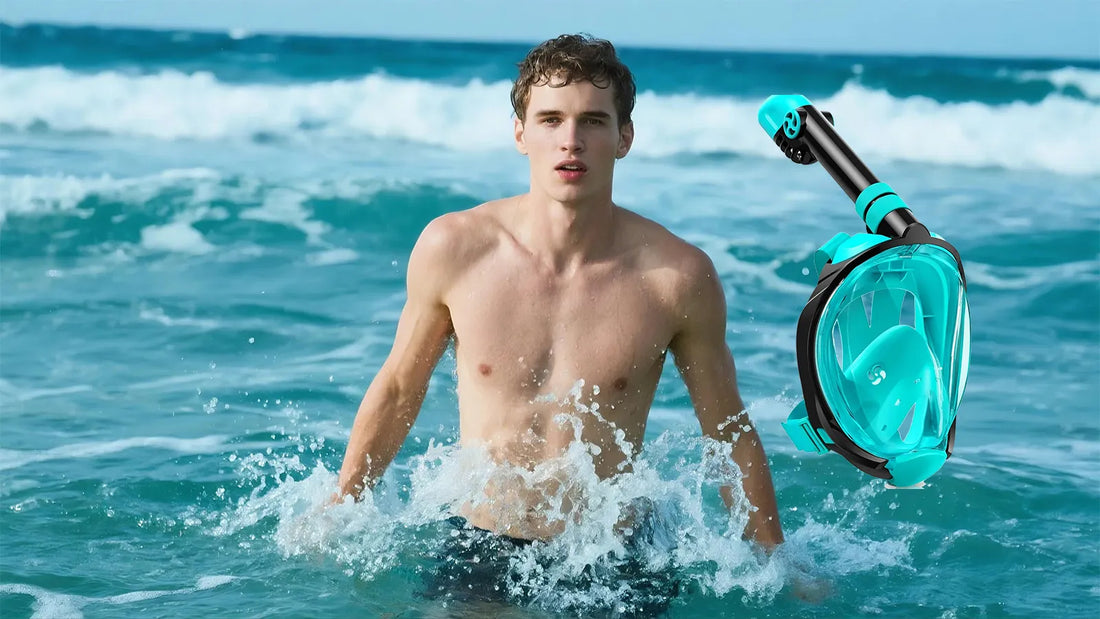Have you ever dreamed of exploring the vibrant underwater world but felt unsure whether snorkeling or scuba diving is the right choice for you? Both activities offer unique ways to experience the ocean, but they differ significantly in terms of equipment, depth, training, and overall experience. This guide will break down the key differences between snorkeling and scuba diving, helping you decide which adventure suits your interests and skill level.
What is Snorkeling?
Snorkeling is a surface-level water activity that allows you to observe marine life while floating on the water's surface. It requires minimal equipment, typically consisting of a mask, snorkel, and fins. The mask helps you see clearly underwater, the snorkel allows you to breathe while your face is submerged, and the fins provide propulsion and ease of movement. Snorkeling is accessible to almost anyone, regardless of age or swimming ability, making it a popular choice for families and casual ocean enthusiasts.
What is Scuba Diving?
Scuba diving, on the other hand, is a more immersive and technical activity that involves diving deep below the water's surface. The term "scuba" stands for Self-Contained Underwater Breathing Apparatus, which refers to the equipment divers use to breathe underwater. This includes a tank of compressed air, a regulator, a buoyancy control device (BCD), and other accessories. Scuba diving allows you to explore coral reefs, shipwrecks, and other underwater environments at greater depths, offering a more intimate encounter with marine life.
Key Differences Between Snorkeling and Scuba Diving
Equipment
One of the most obvious differences between snorkeling and scuba diving is the equipment required. Snorkeling gear is lightweight and easy to use, consisting of a mask, snorkel, and fins. Scuba diving, however, involves more complex and heavy equipment, including an air tank, regulator, BCD, and dive computer. While snorkeling gear is relatively affordable and portable, scuba diving equipment can be expensive and requires regular maintenance.
Depth and Duration
Snorkeling is limited to the water's surface, allowing you to observe marine life from above. While you can dive down briefly to get a closer look, you must return to the surface to breathe. Scuba diving, however, allows you to explore much deeper depths, often ranging from 30 to 130 feet or more, depending on your certification level. Additionally, scuba diving provides longer underwater time, as the air tank supplies you with breathable air for the duration of your dive.
Training and Certification
Snorkeling requires no formal training or certification, making it an accessible activity for beginners. Basic swimming skills and comfort in the water are usually sufficient. Scuba diving, however, requires specialized training and certification from a recognized diving organization. This training covers essential skills such as buoyancy control, underwater navigation, and emergency procedures. While the certification process can be time-consuming, it ensures your safety and enhances your diving experience.
Experience and Interaction
Snorkeling offers a surface-level view of the underwater world, allowing you to observe marine life from a distance. It's a great way to enjoy the ocean without the need for extensive preparation. Scuba diving, however, provides a more immersive experience, enabling you to swim alongside fish, explore coral reefs up close, and even interact with larger marine creatures. The ability to dive deeper and stay underwater longer makes scuba diving a more thrilling and rewarding adventure.
Cost
Snorkeling is generally more affordable than scuba diving. The basic equipment is inexpensive, and many snorkeling spots are free or have minimal entry fees. Scuba diving, on the other hand, involves higher costs due to the need for specialized equipment, training, and certification. Additionally, dive trips often require boat rentals or guided tours, which can add to the overall expense.
Choosing Between Snorkeling and Scuba Diving
When deciding between snorkeling and scuba diving, consider your interests, budget, and comfort level in the water. If you're looking for a casual and affordable way to enjoy the ocean, snorkeling is an excellent choice. It's easy to learn, requires minimal equipment, and is suitable for all ages. However, if you're seeking a more immersive and adventurous experience, scuba diving may be the better option. While it requires more time, effort, and investment, the rewards of exploring the underwater world at greater depths are unparalleled.
Safety Considerations
Both snorkeling and scuba diving come with their own set of safety considerations. For snorkeling, it's essential to be aware of your surroundings, avoid strong currents, and stay within your comfort zone. Scuba diving requires adherence to safety protocols, such as monitoring your air supply, practicing proper buoyancy control, and diving within your certification limits. Regardless of the activity you choose, always prioritize safety and respect the marine environment.
Whether you're drawn to the simplicity of snorkeling or the adventure of scuba diving, both activities offer incredible opportunities to connect with the ocean. By understanding the differences between snorkeling and scuba diving, you can make an informed decision and embark on an underwater adventure that suits your preferences and abilities. So, are you ready to dive in and explore the wonders beneath the waves?

